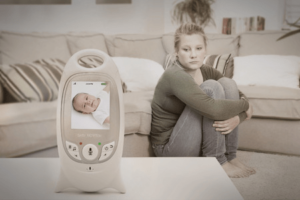IV Ketamine and Treatment-Resistant Mood Disorders
After reading today about a beautiful young man – let’s call him Tom – whose life ended tragically at the crossroads of despair, I started thinking.
Like many of my own patients, he had a wondrously warm and giving heart — and a compassionate heart the size of Montana for homeless animals.
His talent for music generated moving, exquisite collections of melody and lyrics that stunned listeners with its charm.
Such sensitivity, such beauty for the world to enjoy.
But his life ended far too soon, because he could find no relief for his illness.
Tragedy Without IV Ketamine
I’ve treated many people with similar stories in my office. I’ve offered the best that we had–medications, combinations, the latest research, the newest adjunctive treatment, supplements, recommendations for lifestyle changes, collaboration with the the best therapists in the area, resources, articles, support–everything I had. I never stop trying. But until a few years ago, we had little to offer those who didn’t respond to traditional treatment. Or who were just sick of it.
And that’s tragic. Really, really tragic. But more common than we can bear to think.
It’s not just about bipolar disorder or treatment-resistant depression. We’re talking about postpartum depression, PTSD, and other psychiatric mood disorders.
I thought about Jacie. Jacie wasn’t expecting to get pregnant when she did, but she was happy about it, and enjoyed the feelings of wonder about  this tiny new person growing inside her.
this tiny new person growing inside her.
But around the time her second trimester began, she noticed her initial lilting emotions weren’t lilting anymore. In fact, she felt gray…dull…and couldn’t seem to relate to the idea of a baby.
Once the baby was born, everything was a struggle. She felt angry, frustrated, and exhausted beyond belief. And guilty that she wasn’t enjoying this innocent baby girl. In desperation, she talked to her doctor honestly about how she had been feeling. And her fear she might do something to hurt herself or her child.
He referred her to a psychiatrist he trusted, and she began seeing her. Her depression had gone on a long time — untreated.
IV Ketamine and Treatment-Resistant Mood Disorders
When depression comes during pregnancy, it can be so much worse than postpartum depression that begins after the baby is born … and so hard to treat. In Jacie’s case, her depression didn’t budge, and the persistence of it affected her relationship with her baby, and her marriage.
She was surrounded with people who loved her. She was fortunate in that sense. But nothing seemed to ease the agitation and misery she endured. Or her self-hatred and guilt that she resented her baby and didn’t know how to change it, or feel better. To be the kind of mom her baby needed.
Traditional antidepressants and psychotherapy just aren’t effective for some people. If you’re one of them, or you know one of them, you know what I mean. Since depression is caused by a complexity of changes in the brain, there’s no simple solution.
And in my musings, another man came to mind — Dan. He’d suffered with PTSD for over 15 years. War time trauma, loss of friends in combat and the powerlessness he felt to save or protect them; it all tormented him.
He’d been told he should be “getting over this” by his friends and his family. Oh, they meant well. But they had no idea what they were saying. And suggestions  like those didn’t help. Not at all.
like those didn’t help. Not at all.
He struggled just to get through the day … to have a relationship with his wife … to work at a job, to pay the bills.
He wanted to be productive, but every time he had a few good days or weeks, it didn’t last because of the dreams, the night terrors…the reactions to noises or touch. Then he’d lose his confidence, walk off the job, and withdraw again.
The loss of life, of peace, of relationships, of fulfillment, for people like these has been unavoidable till now.
For those who couldn’t benefit from the traditional treatments for mood disorders, there just weren’t any solutions. IV ketamine and treatment-resistant mood disorders went to war.
Your treatment-resistant mood disorder won’t win over IV ketamine.
These stories are just examples, but they represent multitudes of individuals whose lives have been interrupted, oppressed, tormented, or in some cases cut short, by symptoms of disorders that remained unaffected by traditional treatment.
And that’s why I thought of all of these people.
Because the ineptness of so many antidepressants left me feeling powerless to help; too many of my patients were crippled by their disorders, but desperately wanted the same chance at building happiness and fulfillment as anyone else.
Too many.
And that’s why I’m excited now and so full of hope.
That’s why I talk so often and so enthusiastically about this emerging frontier of new therapeutic uses for that anesthetic-turned-antidepressant, IV ketamine.
Because for all all the Toms, Jacies, and Dans who found no help at all from previous treatments, 80% now experience relief, restoration, and often total remission after IV ketamine treatment.
We’re still working to find solutions for that other 20%, and we won’t stop. But we’re helping 80% of those for whom we had nothing, nada, zip…zero… that would help.
All my training didn’t prepare me for the heartbreak of those who are so desperate for relief and can’t find it. But hope is growing, and ideas are flourishing for ways to use this new knowledge to spawn more solutions.
Relief and Solutions are RISING
So after my musings about those who weren’t helped, and the sadness I feel that we didn’t find solutions soon enough, it’s exhilarating to know there’s an entire frontier opening. A new world of treatment for those who weren’t helped before, through the discoveries surrounding ketamine for depression and other new solutions that will spring from it.
IV ketamine and treatment-resistant mood disorders … it’s a fight to the finish, and ketamine is winning.
Are you wondering if you’ll ever be able to have a life…? If you’ll ever get to feel stable — emotionally, financially, socially?
You really aren’t alone. Sometimes you just can’t see there’s support at your fingertips… help just beyond your line of sight.
Reach out and let’s talk about the things in your life and feelings that interfere with the power to live life the way you want to.
Power to find your best self, and share it with those around you.
Power to enjoy.
To the power for finding your best self,
Lori Calabrese, M.D.


It’s difficult to believe that a drug suck as Ketamine would be helpful or hopeful for treatment of bipolar disorder. How does this work? Does it attach to different receptors in the brain or interact with other brain chemistries. I was diagnosed with Bipolar II back in 1993, but I believe I had symptoms long before that. . There is a history of MI in our family on both sides, and my mother was severely bipolar and borderline personality disorder. Add the genetic factor along with a severely abusive home life, It’s a wonder that I survived until I was diagnosed. My first medication regimen was Lithium and Prozac, which worked for a number of years (13), but I am now on Zoloft, Lamotrogine, and Seroquel. I was taken off the lithium because of kidney damage (stage 3) Still, I get into those depressive moods that can last up to a month. Therapy is useful, as I see a counselor every two weeks to keep me “grounded”. But Ketamine scares me. The stories you read about this club drug and the abuse of it makes me wonder how effective it is and what any long term effects might be. I also have MS and it may or may have not contributed to my mental illness. I have been on several treatment regemins including IV mitoxantrone and IV prednisone. The prednisone worked best , but one time sent me into a manic state and I wound up getting arrested. Later on IV prednisone was discontinued as a treatment due to side effects reported. How long does a ketamine infusion last? Does it begin to work immediately? How many doctors are using this? It is interesting and would like to hear your take on it.
A ketamine infusion itself lasts 40 minutes, and it can begin to work on depressive symptoms–in both unipolar and bipolar depressive episodes–almost immediately and clearly by the next day. We schedule 6 infusions over about 2 weeks to get the best response. The benefits for many of our patients have been very long-lasting — only 16% of our patients have needed follow-up infusions. There aren’t many physicians who offer the gold standard of IV infusions outside of research settings; some are psychiatrists and a few are anesthesiologists. If you have further questions, please reach out to me at my office or by email at info@loricalabresemd.com